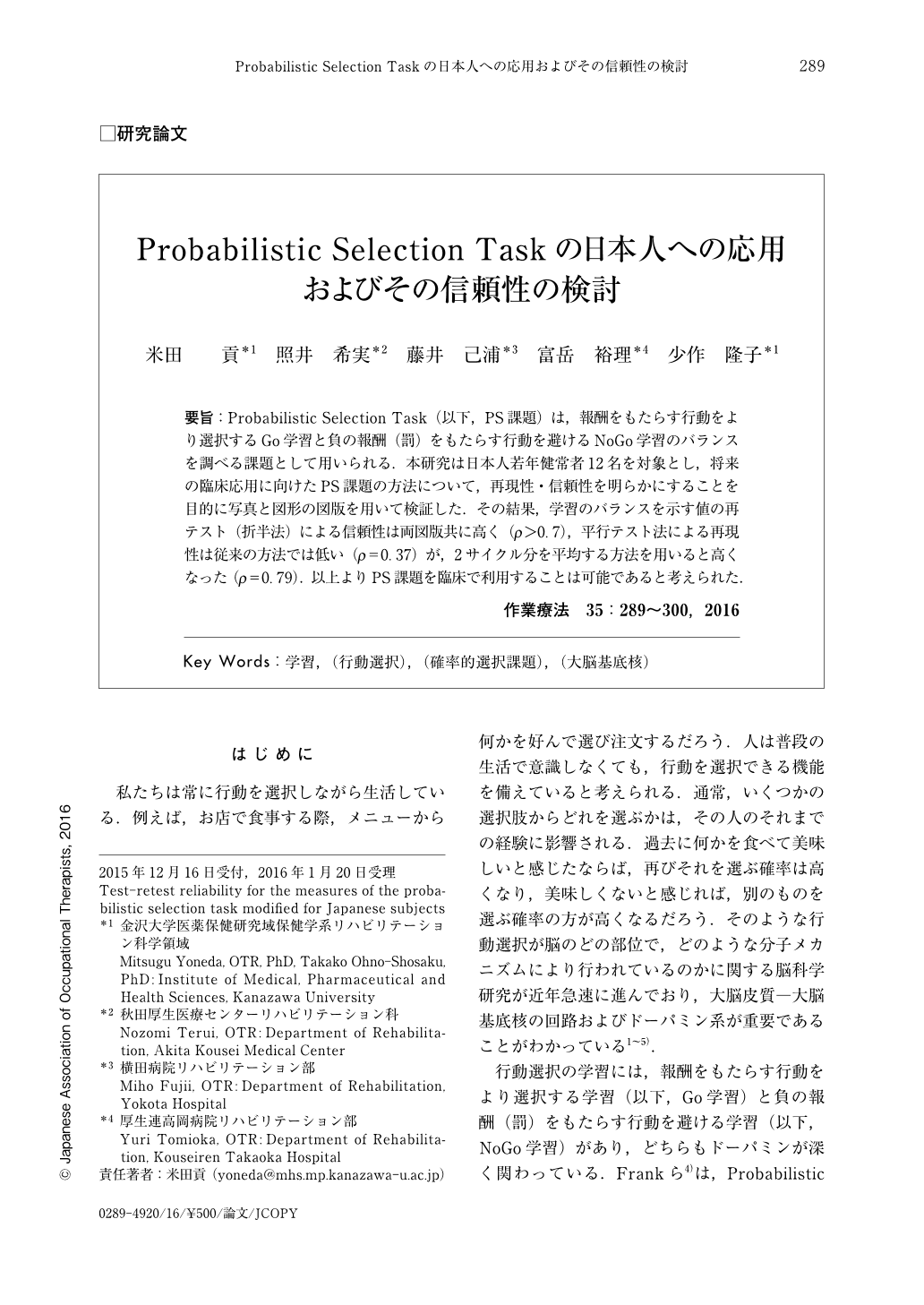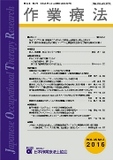Japanese
English
- 販売していません
- Abstract 文献概要
- 1ページ目 Look Inside
- 参考文献 Reference
要旨:Probabilistic Selection Task(以下,PS課題)は,報酬をもたらす行動をより選択するGo学習と負の報酬(罰)をもたらす行動を避けるNoGo学習のバランスを調べる課題として用いられる.本研究は日本人若年健常者12名を対象とし,将来の臨床応用に向けたPS課題の方法について,再現性・信頼性を明らかにすることを目的に写真と図形の図版を用いて検証した.その結果,学習のバランスを示す値の再テスト(折半法)による信頼性は両図版共に高く(ρ>0.7),平行テスト法による再現性は従来の方法では低い(ρ=0.37)が,2サイクル分を平均する方法を用いると高くなった(ρ=0.79).以上よりPS課題を臨床で利用することは可能であると考えられた.
Action selection process is influenced by positive and negative outcomes of similar past decisions. The positive and negative outcomes facilitate (Go-learning) and suppress (NoGo-learning) the action, respectively. The probabilistic selection task has been used to estimate the balance between Go- and NoGo-learning. For future clinical use, the present study applied this task to twelve college-aged Japanese students after some modifications of the protocol, and examined the test-retest reliability of the measures that reflect Go-learning, NoGo-learning, and its learning bias. As stimulus pairs, we used either photographs of nameable objects (animals or flowers) or Kamon (Japanese family crests) designated to minimize verbal encoding. Our data showed no difference in the performance between photographs and Kamon as stimulus pairs, which demonstrated that the test-retest reliability for the measures reflecting Go-learning and its learning bias was low when calculated from one test session (standard protocol), but greatly improved when averaged from two test sessions (modified protocol). These results indicate that this task can be used for evaluating individual learning bias in clinical situations.

Copyright © 2016, Japanese Association of Occupational Therapists. All rights reserved.


